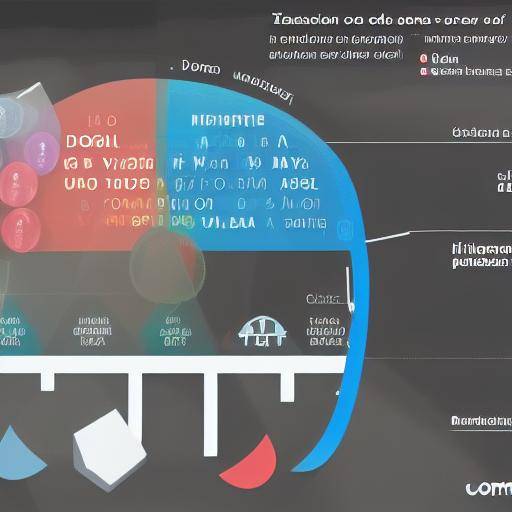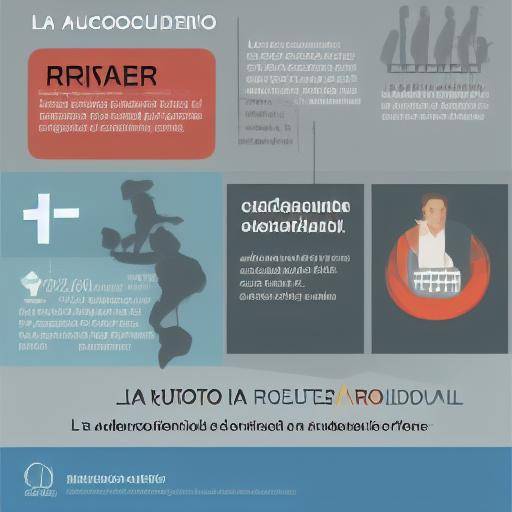
Uncertainty is a constant in life and the business world. The ability to effectively manage and make decisions under these circumstances is an invaluable skill. In this article, we will explore various strategies to manage uncertainty in decision-making, as well as the crucial role of resilience in this process.
Introduction
Uncertainty has always been part of the human condition, and its management has been the subject of reflection and study throughout history. Decision-making under conditions of uncertainty is a relevant subject in different aspects of life, from personal situations to business and financial dynamics. In this article, we will explore how to handle uncertainty in decision-making, focusing on effective strategies and the importance of resilience in this process.
Uncertainty throughout history
Uncertainty has been a constant in the history of humanity. From ancient civilizations to the modern era, people have had to face multiple sources of uncertainty. In economic and trade contexts, uncertainty has played a crucial role in decision-making. From the first commercial transactions to the complex financial markets of today, uncertainty has challenged individuals and organizations, driving the search for strategies to handle it effectively.
Managing uncertainty in decision-making: a current challenge
In the contemporary business environment, uncertainty has become a permanent feature. Globalization, digitalization and other factors have increased complexity and volatility in markets, creating an environment prone to uncertainty. In this context, effective decision-making becomes a crucial challenge. Businesses and leaders must develop strategies to manage uncertainty and make informed decisions that boost long-term success.
Resilience: the crucial role in managing uncertainty
Resilience, understood as the ability to adapt and recover from adversity, plays a crucial role in managing uncertainty. In the context of decision-making, resilience allows individuals and organizations to maintain clarity, calm and responsiveness to unforeseen or challenging situations. Resilience not only involves surviving uncertainty, but also learning from it and getting stronger. In the business sphere, resilience has become a key competition to face the changing challenges of the environment.
Benefits of managing uncertainty effectively
The ability to manage uncertainty in decision-making entails a number of benefits both at the personal level and in the business context. Some of these benefits include:
- More informed decision-making: In understanding and managing uncertainty, decisions can be based on more robust and realistic analysis.
- Adaptability and flexibility: Effective management of uncertainty builds the ability to adapt to unexpected changes in the environment.
Strategies to address uncertainty in decision-making
There are various strategies that can help manage uncertainty in decision-making. Some of these strategies include:
- Stage Analysis: Evaluating different scenarios and their possible consequences helps make more prepared and conscious decisions.
- Development of support networks: Having a strong support system, both personal and professional, can be critical to addressing uncertainty with greater resilience.
Resilience: key to effective decision-making
Resilience plays a key role in effective decision-making under conditions of uncertainty. The following strategies can boost resilience and strengthen the capacity to address uncertainty:
- Emotional management skills development: Learning to manage emotions and keep calm in uncertain situations can facilitate more rational and balanced decision-making.
- Cultivation of mental flexibility: Promoting the open and adaptable mentality allows us to face uncertainty with greater creativity and ability to find innovative solutions.
How to handle uncertainty in decision-making in specific situations
Uncertainty may arise in different contexts, from personal decisions to corporate strategic decisions. We will then explore specific strategies to address uncertainty in different situations:
Financial decisions
The management of uncertainty in financial decisions requires detailed analysis, considering multiple scenarios and their potential impacts. Investment diversification and constant risk assessment are key elements in this area.
Business decision-making
In the business context, uncertainty is a constant. Organizational agility, the ability to adapt to unexpected changes and the search for opportunities in the midst of uncertainty are key components for effective decision-making.
Conclusion
The ability to manage uncertainty in decision-making and develop resilience is an invaluable competition, both at the personal and business level. By understanding the nature of uncertainty, cultivating resilience and implementing effective strategies, people and organizations can face the challenges more securely and achieve outstanding results.
FAQs
Why is it important to manage uncertainty in decision-making?
Managing uncertainty in decision-making is crucial because it allows more informed decisions and adapts to changing situations effectively, which drives better results and reduces the negative impact of unforeseen events.
What role does resilience play in managing uncertainty?
Resilience is fundamental in the management of uncertainty, as it allows to maintain clarity, calm and responsiveness to unforeseen situations. Resilience also drives learning and growth from challenging experiences.
What are some strategies to develop resilience in decision-making?
Some strategies to develop resilience include the development of emotional management skills, the cultivation of mental flexibility and the search for both personal and professional support networks.
In what contexts is it especially relevant to manage uncertainty in decision-making?
Managing uncertainty in decision-making is particularly relevant in business, financial and strategic contexts, where informed and agile decision-making can make the difference between success and failure.
What benefits can provide effective management of uncertainty in decision-making?
Effective management of uncertainty can offer benefits such as making more informed decisions, enhancing adaptability and flexibility, and developing greater resilience to unforeseen situations.
What is the importance of mental flexibility in decision-making under conditions of uncertainty?
Mental flexibility is crucial in decision-making under uncertainty, as it allows you to explore different options, adapt to unexpected changes and find innovative solutions in the midst of complex and changing situations.
Conclusion
The effective management of uncertainty in decision-making, together with the development of resilience, are fundamental both at the personal and business levels. The management of uncertainty and the building of resilience not only lead to more precise and agile decision-making, but also foster personal and organizational growth in a constantly changing environment.
External Links
- Article on Uncertainty Management at Harvard Business Review
- Report of the World Economic Forum on Business Resilience
- Guide to strategies to make decisions under uncertainty in Forbes magazine
In short, the ability to handle uncertainty and make effective decisions in all aspects of life is an essential skill in the current world. In understanding the nature of uncertainty, building resilience and implementing effective strategies, it is possible to face challenges with confidence and achieve outstanding results.






















































